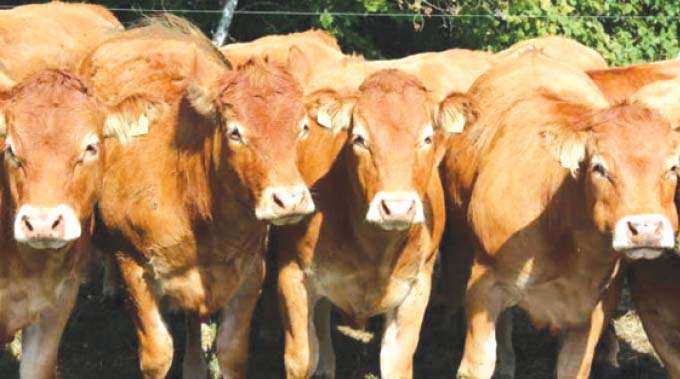Solidaridad, Coopers Zim fight January disease

Africa Moyo Senior Business Reporter
FIFTEEN dip tanks in Mashonaland East province are set for rehabilitation and will get dipping chemicals as the fight against Theileriosis (January disease) deepens.
January disease has claimed 12 000 beasts in Mashonaland East alone since November 2017, and several others across the country.
Solidaridad Southern Africa Regional Expertise Centre, in partnership with Coopers Zimbabwe, are rehabilitating and supplying dipping chemicals to the 15 dip tanks in the province. The exercise is targeting five dip tanks in Wedza, four in Buhera and six in Chikomba.
Hundreds of farmers are being trained to combat January disease and also fend off other livestock infections. The first training for farmers was conducted at Manyimo dip tank in Matsine, Wedza North, where Solidaridad and Coopers handed over a month’s supply of dipping chemicals to kick-start the programme.
Solidaridad’s regional livestock expert Dr Christine Yambayamba said; “We hope that the farmers, after getting this head-start will then be able to pay for the next dip once the initial chemicals are finished. The expectation is that after the training, farmers will appreciate the need to continue dipping because their animals will no longer be sick.”
A Wedza communal farmer Mr Masimba Mbesa said the training received so far has been useful as it has primarily dispelled some myths, especially the belief that their cattle were being contaminated by other animals when they took them to the dip tank.
“ . . . yet we have learned that dipping is actually what sick animals need,” said Mr Mbesa.
Farmer default, along with an inadequate supply of chemicals due to ongoing foreign currency shortages, have been cited as some of causes of the rapid spread of January disease. Coopers’ head of programmes and projects Professor Joseph Kamuzhanje
called for a change in mindsets in order to preserve the national herd.
“As long as farmers still view cattle as mere beasts and not economic assets then there is no incentive to take care of them,” said Prof Kamuzhanje.
“If a farmer has six cows and each is worth RTGS$1 000, then he is sitting on RTGS$6 000. If one animal dies, then he’s lost RTGS$1 000. Once farmers start to think that way then I am sure that even when there aren’t enough Government supplied chemicals, farmers will use own resources to protect their wealth.”
Dr Yambayamba said to help enhance returns and empowerment of smallholder farmers, Solidaridad has developed a “cattle grading app” which enables farmers to negotiate with cattle buyers from an informed position in order to get a fair value for their livestock.
“Most of the time farmers are being asked to pay for inputs, chemicals or nutrients. So, if they can fetch a better price on the market they will be able to pay for the inputs they need and meet their livestock health and nutritional requirements,” she said.
The app is already in use in neighbouring Zambia and is set to be launched in Zimbabwe soon.











Comments